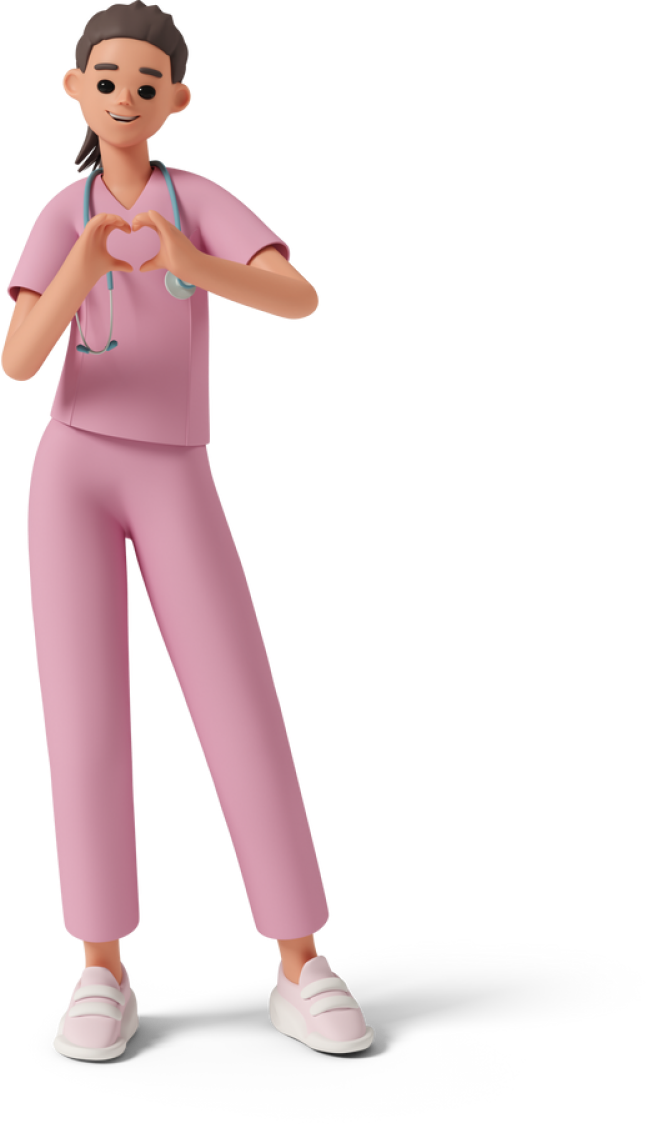UNIVERSITIES
MBBS in Switzerland - a perfect location for international students

Switzerland attracts numerous future students of human medicine and dentistry every year. Swiss medical universities are particularly attractive due to their high-quality education in colorful student cities. Sounds exciting, doesn't it?
Are you interested in studying medicine in Switzerland?
We will be happy to advise you free of charge about your options for studying medicine in Switzerland.
Studying MBBS in Switzerland - your advantages
Switzerland is generally known as a great holiday destination with beautiful nature and impressive cities. But studying MBBS in Switzerland also has a lot to offer.
First-class training and research
Swiss universities are among the best in Europe. The high-quality education with state-of-the-art learning methods and facilities prepares you excellently for your future career as a doctor.
The world's leading healthcare system
The Swiss healthcare system is generally recognised as one of the best and most effective healthcare systems in the world. Teaching in very well-equipped hospitals with excellently trained teaching staff enables you to learn how to care for patients at the highest scientific level.
Beautiful student towns in a magnificent landscape
Switzerland's student cities not only offer high-quality educational institutions, but also a high quality of life and cultural diversity. Surrounded by breathtaking scenery, you can enjoy your student life here.
Medical studies in German
Switzerland has several official languages, including German, French, and Italian. Therefore, many Swiss universities also offer medicine courses in German.

Together for success - futureMBBS and studying medicine abroad
Do you want to study medicine abroad and are looking for the most suitable university for you and don't really know where to start looking for the right country and a good university? futuredoctor is happy to support you!
Besides the Student advisory service In addition to selecting the university and accompanying you to the desired on-site appointments, futureMBBS also offers support during the application process and preparation for possible aptitude tests, as well as orientation at the place of study - including the search for accommodation! Get your application quickly and easily free info pack!
Studying medicine in Switzerland - The universities
There is a large selection of Swiss medical schools that could be suitable for you. Below, you will find an overview of the special features of some of the top medical universities.
University of Basel
The University of Basel is the oldest university in Switzerland, having been founded in 1460. The Faculty of Medicine offers a degree programme in human medicine and dentistry in German. The medical degree programme is divided into a three-year Bachelor's degree and a three-year Master's degree. Teaching is organised into subject blocks and takes place in the beautiful, historic facilities of the university.
Basel is a lively student city with a wide range of cultural offerings such as museums and galleries. The city is located on the border with Germany and France, which makes it easy to visit other European cities.
University of Fribourg (Fribourg)
At the University of Fribourg, the Human Medicine programme is offered in German and French. Every year, around 120 students are admitted to the Bachelor's degree programme in Human Medicine. Teaching takes place in small cohorts. This encourages contact between students.
Fribourg is located in the border region between French-speaking and German-speaking Switzerland, which creates a unique cultural atmosphere. With its medieval buildings and picturesque river, the well-preserved historic centre of Fribourg exudes a very special charm.
University of Bern
The University of Bern educates more than 2,200 students in human medicine and dentistry, making it one of the largest medical faculties in Switzerland. In terms of content, the university is unique due to its strong practical orientation, its specialised diversity and its cutting-edge medical research.
Bern is the capital of Switzerland and is located in the centre of the country. Surrounded by a picturesque landscape, you can enjoy your student life to the full here in an international community and with numerous cultural offerings.
University of Geneva (UNIGE)
Founded in 1876, the Faculty of Medicine is the second largest of the nine faculties at the University of Geneva. In the heart of international Geneva, you can study human medicine here in French. The Faculty of Medicine in Geneva is a leader in the fields of neurosciences, genetics and transplantation in particular.
Geneva is located in the south-west of Switzerland, close to France. The city is located on the shores of Lake Geneva and is surrounded by the Alps. Numerous outdoor activities, nightlife options and student organisations offer you the opportunity to split your student life in an exciting way.
University of Zurich (UZH)
The largest university in Switzerland offers human medicine and dentistry degree programmes in German. The six-year programme is divided into a Bachelor's and Master's degree course. The guiding principles of the Faculty of Medicine at the University of Zurich are outstanding quality and continuous further development in medical education. Intensive contact with other universities in Europe, the USA and Australia ensures international exchange.
Zurich is located in the north of Switzerland and is the country's largest city. The city on the shores of Lake Zurich is not only the economic centre of Switzerland, but also a lively city with a wide variety of cultural offerings and educational institutions.
University of Neuchâtel (UNINE)
The University of Neuchâtel is located in French-speaking Switzerland. Lectures on the human medicine programme are held in French apart from English. Due to its manageable size, the university has a familiar atmosphere and students benefit from easy access to lecturers and research teams.
The small town of Neuchâtel on the shores of Lake Neuchâtel has a rich history and is known for its well-preserved historical buildings and sights. The university attracts students from different countries, resulting in a multicultural community.
University of Lausanne
The human medicine degree program at the University of Lausanne is taught in French and is divided into a bachelor’s and a master’s degree program. As one-fifth of the students and one-third of the teaching staff are of foreign origin, the University of Lausanne campus has an international atmosphere. State-of-the-art technology, laboratories, and spacious, well-shaded lecture theatres create an optimal teaching environment.
The city of Lake Geneva is the headquarters of the International Olympic Committee and, therefore, has a strong sporting tradition. Students have access to numerous sports facilities, parks, and activities such as sailing, skiing, and hiking.
Studying medicine in Switzerland - requirements & eligibility criteria
Aspiring medical students will need a general higher education entrance qualification to apply for a medical degree program in Switzerland. However, the grade point average is irrelevant. If you already have medical training or other professional experience in the medical field, this can be an advantage when applying.
For admission to most universities in Switzerland, you must successfully pass the EMS ("Aptitude Test for Medical Studies in Switzerland"). This test takes place once a year, usually at the beginning of July, and costs CHF 200. In terms of content, it is less about specialist knowledge and more about the ability to recognize and analyze problems and identify solutions. Your cognitive skills are tested in numerous subtests such as "Comprehension of complex issues," "Spatial imagination," or "Arithmetic and mathematical problem-solving." The result of your EMS test is included in the admission assessment for the medical degree program. However, the exact weighting can vary between universities. The universities that require the test are Bern, Fribourg, Basel, and Zurich. At the other universities listed above, prospective students are admitted to the medical degree program without a test. Here, you must prove your ability to take the examinations during the first year to be allowed to continue your studies afterward.
If you want to start studying in Switzerland, you must also be over 18 years old and speak the national language.
Documents Required for MBBS (Bachelor of Medicine and Bachelor of Surgery) in Switzerland
1. Application form: Make sure that you complete and submit the application form provided by the university. The form can be easily accessed online or downloaded from the university's website.
2. Academic transcripts: You must provide official transcripts or records of your academic achievements from all previous educational institutions, including high school and college/university transcripts.
3. Degree certificate: You must provide a copy of your degree certificate or a letter of completion if you have completed a bachelor’s degree or equivalent.
4. Language proficiency: You may need to show proof of language proficiency based on the language of instruction, such as test scores or certificates from recognized exams like TestDaF, DELF/DALF, or others.
5. Curriculum vitae (CV) or resume: A comprehensive document showcasing your educational background, work experience, research experience, and any other relevant qualifications or achievements.
6. Letters of recommendation: You need two to three recommendation letters from individuals who can evaluate your academic abilities, character, and potential for success in a medical program. Choose recommenders who know you well, such as professors, research supervisors, or employers.
7. Personal statement or statement of purpose: A formal written statement is required to explain your motivations, goals, and reasons for seeking a medical degree. This affords you the opportunity to highlight your passion for the field, relevant experiences, and dedication to the medical profession.
8. Identification documents: Make sure to submit a copy of your passport or other identification documents as, it may be required for identification purposes.
Scholarships for MBBS (Bachelor of Medicine and Bachelor of Surgery) in Switzerland
1. Swiss government excellence scholarships: The Swiss Government provides scholarships to international students through the Swiss Federal Commission for Scholarships for Foreign Students (FCS). These scholarships cover a wide range of fields of study, including medical-related programs. The application process and eligibility criteria differ based on the applicant's country of residence. It's advisable to visit the official website of the Swiss Government Excellence Scholarships for comprehensive information.
2. Swiss-European mobility programme (SEMP): SEMP provides mobility grants for European students in the Erasmus+ program, allowing medical students to study in Switzerland for a limited time. Check with your home university or relevant authorities for eligibility for SEMP grants.
3. University-specific Scholarships: Many Swiss universities provide scholarships and financial aid programs for international students, offering opportunities based on academic merit, financial need, or other criteria. To explore these options, it is recommended to visit the official websites of the universities you are interested in and review their scholarship opportunities and application procedures.
4. Private and non-profit organizations: There are private foundations and non-profit organizations that offer scholarships for international students studying in Switzerland. Some examples are the Swiss Study Foundation, the Swiss National Science Foundation, and the KAAD Scholarships. These organizations provide scholarships in various fields, including medical-related programs.
5. Home country scholarships: There are private foundations and non-profit organizations that offer scholarships for international students studying in Switzerland. Some examples are the Swiss Study Foundation, the Swiss National Science Foundation, and the KAAD Scholarships. These organizations provide scholarships in various fields, including medical-related programs.
Studying medicine in Switzerland - content and structure
The medical degree programme in Switzerland lasts six years. The Duration of medical studies consists of a 3-year Bachelor's degree programme and a three-year Master's degree programme.
In the Bachelor's degree programme, you will primarily acquire basic knowledge in scientific subjects such as physics, chemistry, physiology and genetics. You will learn about the structure and function of the human body and organ systems. This knowledge is taught to you in the form of lectures and small group lessons. You will acquire practical skills in the form of GP internships. Each semester ends with a written and oral examination. After successfully completing the Bachelor's programme, you will be admitted to the Master's in Medicine.
During your master’s degree programme in Human Medicine, the content of the Bachelor's degree programme is deepened. The focus is now on acquiring knowledge about the prevention, diagnosis and treatment of diseases in various medical specialities. Clinical rotations in different hospital departments are an essential part of the master’s programme. You will complete internships in various medical specialities, such as internal medicine, surgery, paediatrics, gynaecology and many more. During your internships, you can apply the medical knowledge you have already acquired in real clinical situations and learn the practical skills you will need for your future career as a doctor.
During your master’s degree, you have the opportunity to specialise in specific medical fields, for example cardiology, orthopaedics or neurology. You could then also write your master’s thesis in this area to complete your degree programme.
Your medical studies are completed with a successfully passed federal examination in human medicine.
Medical studies in Switzerland are recognised in Germany and other European countries in accordance with the guidelines of the Bologna Process. This means that you can choose the European country in which you would like to begin your further training as a medical specialist after completing your studies.
Studying medicine in Switzerland - Costs
In Switzerland, too, the tuition fees and your living expenses form the basis for calculating your Medical studies-costs.
The semester fees vary between the individual universities and average around 78,633 INR (CHF 800). The University of Geneva has the lowest fees at 47,070 INR (CHF 479), while the University of Zurich charges its students around 11,4,974 INR (CHF 1170) per semester, making it the most expensive.
The high quality of life in Switzerland's cities comes at a price. The cost of living is significantly higher than in Germany. You should expect to pay at least 1,96,584 INR (CHF 2,000) per month for food, rent and leisure activities.
The good news: there are numerous Scholarships that can help you cover the costs. The futureMBBS team will be happy to advise you on possible scholarships.
Jobs and Salary after MBBS (Bachelor of Medicine and Bachelor of Surgery) in Switzerland

1. Residency training: After earning your medical degree, you would undergo residency training to specialize in a specific area of medicine, which typically lasts several years and provides practical experience and specialization in your chosen field.
2. Medical practitioner: After finishing your residency training, you can work as a medical practitioner in different healthcare settings such as hospitals, clinics, private practices, or research institutions. As a medical practitioner, your responsibilities would include diagnosing and treating patients, prescribing medications, performing procedures, and managing their overall healthcare.
3. Specializations: Switzerland offers various medical specializations for doctors, including internal medicine, surgery, paediatrics, cardiology, neurology, gynaecology, dermatology, and radiology. Specializing in a specific area can lead to more job opportunities and potentially higher salaries.
4. Academic and research careers: In Switzerland, medical professionals have the opportunity to pursue academic and research careers. They can work as professors or researchers in medical universities, contribute to medical research projects, and publish scientific papers. These careers often combine clinical work, teaching, and research activities.
5. Salaries: Salaries for medical professionals in Switzerland are generally high and can range from approximately CHF 100,000 to CHF 300,000 or higher per year, depending on factors such as specialization, experience, location, and the type of institution. Specialized doctors and those with more experience often earn higher salaries.
Country and people: 4 interesting facts about Switzerland
Attention cheese lovers! If you like cheese, Switzerland is the right place for you, as the country is home to over 450 types of cheese. In addition to cheese, Switzerland is also known for exporting chocolate and watches.
Square flag! Apart from the Vatican, Switzerland is the only country with a square flag. As early as the 14th century, soldiers used the white cross on a red square background to recognise each other.
Mountains, mountains, mountains! A good three quarters of Switzerland consists of mountains, with the Alps making up 60 per cent of the country. The beautiful mountain regions are hugely important for Swiss tourism.
Where does the abbreviation CH come from? You may have noticed that Switzerland is abbreviated to CH. Unlike the DE of Germany, this abbreviation is not so easy to derive from the name. So why CH? The official name of Switzerland is Confoederatio Helvetica, which translates as "Swiss Confederation".
Studying medicine in Switzerland - Application
If you have decided to start studying medicine in Switzerland, you should familiarise yourself in good time with the Deadlines for the application at the various medical universities. You can apply for a place to study medicine in Switzerland online via the "swissuniversities" platform, which is similar to the German website "Hochschulstart". There you have to register online and upload various documents, such as your CV, your university certificate or a current passport photo. We will support you with the application process!
Are you ready to realise your dream of studying medicine in Switzerland? Contact us today and start your journey with futureMBBS. We look forward to accompanying you on your journey and working with you to realise your dream of a career in medicine.
By the way: If you don't have an Abitur, but still want to fulfil your dream of studying medicine: There are countries where you can Study medicine with a vocational baccalaureate can.
STARTING SHOT
What are you waiting for? 🎉
Order your information package now, find out about studying medicine abroad and get started as a medical student!
FREQUENTLY ASKED QUESTIONS
FAQs about studying MBBS in Switzerland
What are the tuition fees for studying MBBS in Switzerland?
The tuition fees for MBBS programs in Switzerland vary by university. On average, fees range from 47,070 INR (CHF 479) per semester at the University of Geneva to 11,4,974 INR (CHF 1170) at the University of Zurich. The overall cost also includes living expenses, which can amount to approximately 1,96,584 INR (CHF 2000) per month.
What scholarships are available for international medical students in Switzerland?
International students can apply for various scholarships, such as the Swiss Government Excellence Scholarships, the Swiss-European Mobility Programme (SEMP), and university-specific scholarships. These provide financial assistance based on merit, need, or other criteria. It is advisable to check with individual universities for specific opportunities.
What are the language requirements for studying MBBS in Switzerland?
Most medical programs in Switzerland are offered in German, French, or Italian, depending on the region. Language proficiency is a crucial requirement, and students may need to provide language test scores (like TestDaF or DELF/DALF) to prove their ability to follow the curriculum.
How high are the tuition fees for studying medicine in Switzerland?
Semester fees vary depending on the university and average around 78,572 INR (CHF 800). In addition, you should expect high living costs of at least 1,96,430 INR (CHF 2,000) per month.
Can international students work while studying MBBS in Switzerland?
Yes, international students can work part-time while pursuing their MBBS in Switzerland. However, non-EU students are limited to working 15 hours per week during the semester. This allows students to manage their studies and living expenses, but it’s essential to ensure that it does not interfere with academic commitments.
29 countries for your medical studies
Netherlands
Groningen, Maastricht, Amsterdam, Leiden, Utrecht, Rotterdam
Switzerland
Basel, Fribourg, Bern, Geneva, Zurich, Neuchâtel, Lausanne


























